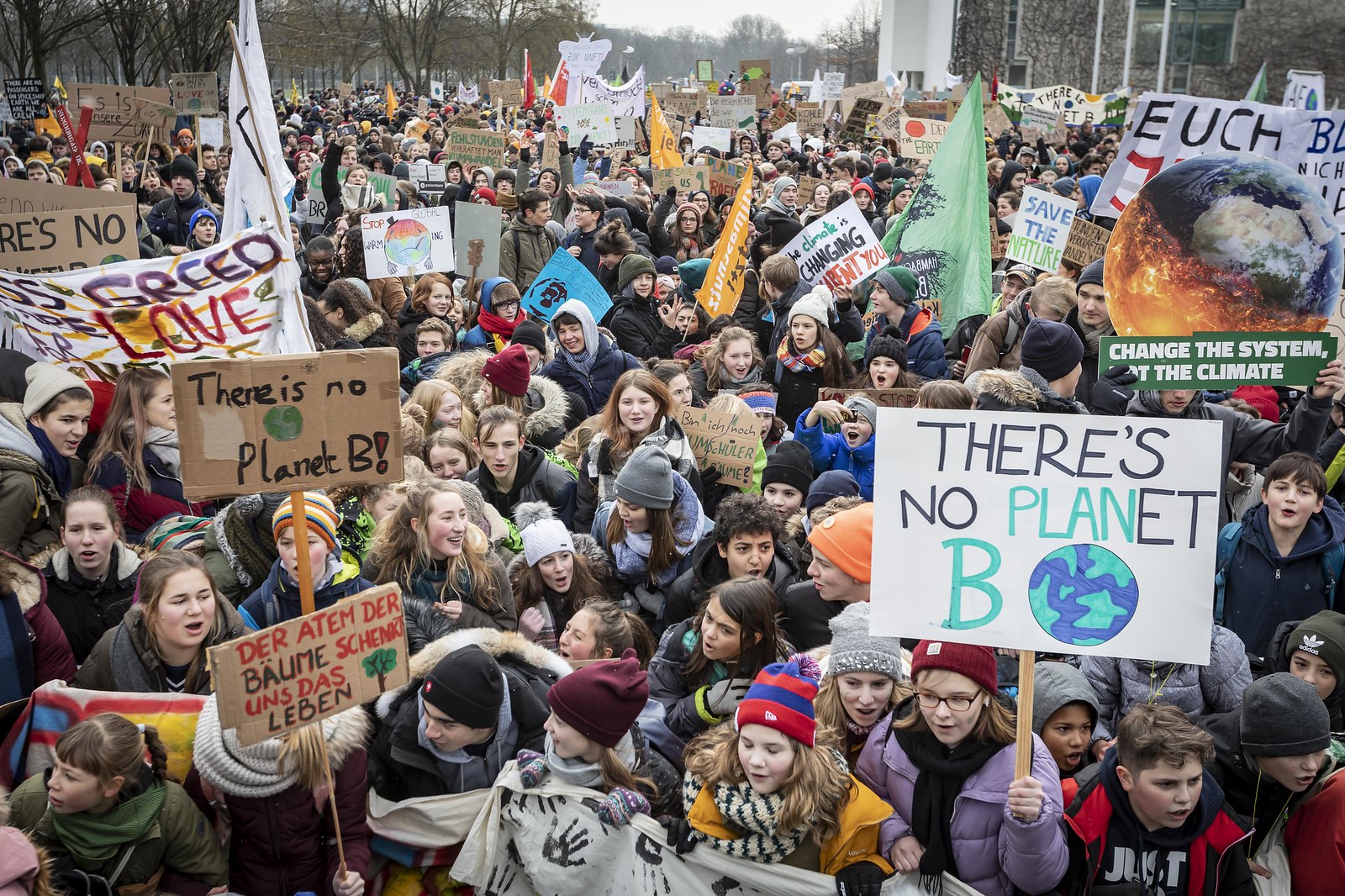Conscious consumerism: can we shop our way out of the crisis?
Posted on 02 Feb 2021 Categories: Blog, Climate crisis
by Caroline Hartnell
‘Anyone who believes that exponential growth can go on forever in a finite world is either a madman or an economist,’ remarked the economist Kenneth Boulding. Yet growth dominates our political and economic thinking, says model, actress and activist Lily Cole, introducing an episode of her Who Cares Wins podcasts titled ‘Is more better?’ So are we being led by madmen? Or is infinite growth possible after all? Is conscious consumerism possible? Can we shop our way out of the crisis?
Or are we shopping our way to disaster?
Fashion consultant Aja Barber sees how much more people are buying and fears the world of fast fashion and cheap clothes is propelling us towards ecological disaster, with a vast majority of clothes bought ending up in landfill. And what about the people in poor countries making clothes – how can they earn a living wage? ‘They’re not!’ she says. Low prices are possible because of the wage gaps between richer and poorer countries. Ethical brands selling more sustainable clothing may be more expensive but we need to buy fewer clothes (2 dresses @ £50 rather than 10 @ £10). As consumers we need to put pressure on businesses to explore sustainability, and to tackle the stigma around second-hand clothes.
Lisa Jackson, VP of environmental policy at Apple, disagrees. In her view, Apple is as at ‘the cutting edge of climate ambition’. By 2030, the company aims to have net zero climate impact through its whole manufacturing supply chain and all product life cycles. Taken all together, she says, the changes they’ve made to iPhone 12 cut over 2 million metric tonnes of carbon emissions annually. ‘It’s like removing 450,000 cars from the road per year.’
Decoupling – the conscious consumerism view
Andrew McAfee, author of More From Less and principal research scientist at MIT, believes we can decouple human development from environmental impacts and so reduce our carbon footprint. The first 170 years of the industrial era suggested that decoupling was impossible, he says. Then in 1970 came the first Earth Day, when people began to say we had to stop using more and more of the world’s resources. Since 1970, the richest countries have started to achieve decoupling. We can have absolute decoupling (we use fewer resources year by year) or relative decoupling (we produce the same/more but less carbon-intensively). In the US, for example, agriculture is using fewer acres of land each year but producing more. This is driven by businesses’ pursuit of cost reduction – something that ‘super profit hungry’ capitalism is passionate about – and technological innovation. New devices, eg smartphones, are much more efficient than the multiple devices they replaced, so they represent decoupling. Even if we include foreign/imported emissions, US emissions are still down and we are beginning to take fewer resources from the planet.

Then why have emissions increased so much in the last few decades, asks Cole. The decline isn’t fast enough, McAfee admits. Increased population, increased economic growth and lack of regulation of greenhouse gas emissions are all factors here. ‘Unrestrained capitalism is a bad idea,’ he admits. Businesses will pollute if it costs less for them. One issue is that the carbon price is much too low.
Accelerating wealth inequality is something he’s ‘not as bothered about as some people are. The most unequal places are great places for the average person to live.’ He’s much more worried about inequality of opportunity, he says.
Why is degrowth a bad idea, Cole persists. ‘Because it’s so unpopular,’ says McAfee. ‘What society has ever embraced it? Can we say to low-income countries: for the sake of the planet you need to stay where you are.’ We need to continue our trajectory of improving standards of living. He quotes Einstein’s definition of insanity: doing the same thing again and again and expecting a different result. Why do it now?
Luxury for all through conscious consumerism – fairytale or possibility?
McAfee believes that ‘conscious consumerism’ can enable what Cole calls the ‘utopia of everyone having an affluent lifestyle’. Environmental activist and writer George Monbiot disagrees. ‘We need to consume less, not greener, or we will burst the planetary boundaries.’ Green products are still products and they still use energy and resources, he points out.
There can be energy decoupling, ie potentially reducing to zero the amount of emissions used in production, but not resource decoupling. It has been estimated that we can sustainably use 50 billion tonnes of the earth’s resources a year, he says. We’re currently using 70 billion tonnes, and business as usual would mean 180 billion tonnes by 2050. Relative decoupling – through cutting costs, carbon taxes, technology, etc – could reduce this to 95 billion tonnes, but that’s still almost twice the sustainable level.
‘We are all brought up with a fairytale of living in private luxury,’ endlessly reinforced by advertising, says Monbiot, and ‘unlearning this is a huge task’. But being part of a large number of others fighting together helps. That’s why he’s so supportive of Extinction Rebellion, Fridays4Future, etc. ‘We’re going to be citizens not consumers.’

The promise of capitalism that everyone can aspire to private luxury is ‘a lie’, for two reasons, he points out. First, because the current economy doesn’t distribute wealth. Instead, most goes to the top 1 per cent. We’d need to increase the global economy around 11 times just to have everyone living on $5 a day. We will never make everyone rich through growth. What we need to make people prosperous is redistribution. If we use tax in progressive and redistributive ways, we can tax out of existence everything that depletes the ‘earth’s natural treasury’. Governments can break the spiral of wealth accumulation, he says. In the 1940s the UK had a top rate of tax of 98 per cent while it was 94 per cent in the US.
Second, there’s simply not enough ecological or physical space. The UK’s ecological footprint is five times its ecological capacity. ‘We depend on taking other people’s resources. We have things because others haven’t.’
For Monbiot the solution is instead to invest in public luxury – parks, swimming pools, tennis courts, art collections, playgrounds, theatres – so we all have lovely places to live. We need to rebuild the commons, ie resources owned and managed in common, by communities.
Political transformation
This sounds like big government, says Cole, which many are opposed to. ‘We should be wary of the over-intrusive state,’ agrees Monbiot. The government needs some powers, but it should devolve as much power as possible to the smallest possible political units and then stand back. Communities will discharge their responsibilities much better than central government. He gives the example of devolving the infrastructure budget in Porto Alegre in Brazil, where 50,000 people take part in budget deliberations each year. The entire city was transformed as it ‘wrested control from government and friends of government and used money for public benefit’.
He compares the process of rewilding nature to transforming politics. In ecology, Monbiot believes we need a shift from conservation to rewilding. ‘We should frontload a few interventions and then let ecosystems rewild under their own steam.’ We need to do the same politically, he says, devolving powers and then standing back.
Summing up, Cole emphasises that conscious consumerism and degrowth are driven by different ideas of human nature, based on competition and cooperation. Darwin looked at cooperation, she reminds us, not just survival of the fittest. Both competition and cooperation play their part in evolution. Can conscious consumers and environmentalists come together to find solutions? The appalling loss of species, the millions of species threatened, the increasing number of floods and fires and storms, and the resulting tide of climate refugees surely provide clear evidence that the present version of capitalism isn’t working.
Want to keep up-to-date with more articles like this? Sign up to our newsletter.
Posted on 02 Feb 2021 Categories: Blog, Climate crisis

